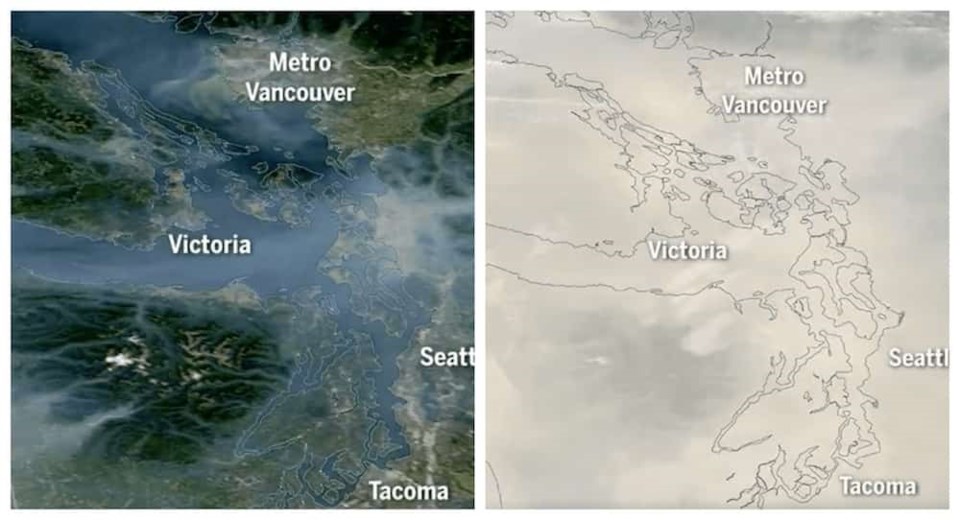Environment Canada has issued a special weather statement for the tenth day in a row for Metro Vancouver due to several wildfires burning south of the border.
While conditions have improved, the federal forecasting agency says that ground-level smoke remains and is expected to remain throughout the week.
A weather system forecast for Friday is expected to bring further improvements this weekend, but it isn't expected to clear all of the smoke out of the region. Localized smoke concentrations may vary widely across the region as winds and temperatures change, and wildfire behaviour changes.
Carmen Hartt, a meteorologist with Environment Canada, tells Vancouver Is Awesome in a phone interview that Friday's weather pattern will clear some of the smoke out of the area, but that the smokey conditions are expected to persist until next week.
Today, the city has an air quality index rating of 162, or "unhealthy." This air quality level is expected to persist until midday Friday, and then conditions will slightly improve to be "unhealthy for sensitive groups."
A time-lapse shows the magnitude of the smoke that moved into the Lower Mainland over the last week. At the beginning of the video, there are only a few wisps of smoke across the region. By the end, the entire area is covered in a thick blanket of smoke.
The video, which was created by local journalist Nathan Griffiths and is shared here with his permission, uses satellite imagery from NASA to depict what conditions are like when the air quality health index has registered 10+, the highest rating.
Watch wildfire smoke blanket Metro Van/Seattle/Victoria in this satellite timelapse 🛰 from r/vancouver
If you're feeling unwell these days, your first thought might be to get tested for the novel coronavirus. However, wildfires burning south of the border have created poor air quality in the Lower Mainland, which can cause a range of health effects. Find out how to tell the difference between symptoms, here.
Exposure to fine particulate matter is particularly a concern for people with underlying conditions such as lung disease, heart disease, chronic obstructive pulmonary disease (COPD), asthma, and/or diabetes, individuals with respiratory infections such as COVID-19, pregnant women and infants, children, and older adults. Individuals who are socially marginalized may also be at elevated risk.
For a way to comprehend the effects of the wildfire smoke, an app called Sh**t! I Smoke converts air quality into the number of cigarettes a person will 'smoke' in a day simply by breathing the air. Earlier this week, Vancouverites 'smoked' a staggering 8.3 cigarettes merely by breathing the air outside.



